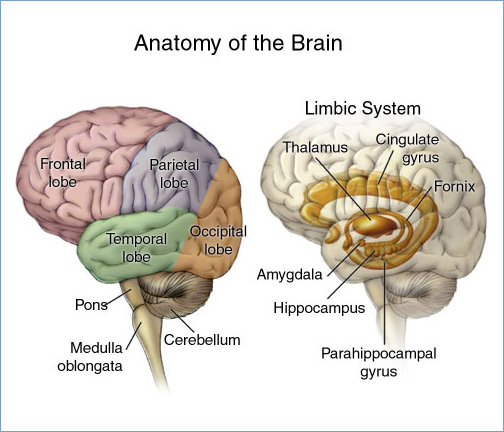|
Startle (other)
The startle response is an unconscious defensive response to sudden or threatening stimuli. Startle may also refer to: * Startle display or deimatic behaviour, any pattern of bluffing behaviour in an animal that lacks strong defences * Startle syndrome or hyperekplexia, a rare neurologic disorder * Fear-potentiated startle Fear-potentiated startle (FPS) is a reflexive physiological reaction to a presented stimulus, and is an indicator of the fear reaction in an organism. The FPS response can be elicited in the face of any threatening stimulus (e.g., any object, perso ..., a reflexive physiological reaction to a presented stimulus See also * * * Startling (other) * Startle Evoked Movement, the involuntary initiation of a planned action in response to a startling stimuli. {{dab ... [...More Info...] [...Related Items...] OR: [Wikipedia] [Google] [Baidu] |
Startle Response
In animals, including humans, the startle response is a largely unconscious defensive response to sudden or threatening stimuli, such as sudden noise or sharp movement, and is associated with negative affect.Rammirez-Moreno, David. "A computational model for the modulation of the prepulse inhibition of the acoustic startle reflex". ''Biological Cybernetics'', 2012, p. 169 Usually the onset of the startle response is a startle reflex reaction. The startle reflex is a brainstem reflectory reaction (reflex) that serves to protect vulnerable parts, such as the back of the neck (whole-body startle) and the eyes (eyeblink) and facilitates escape from sudden stimuli. It is found across many different species, throughout all stages of life. A variety of responses may occur depending on the affected individual's emotional state, body posture, preparation for execution of a motor task, or other activities. The startle response is implicated in the formation of specific phobias. Startle ... [...More Info...] [...Related Items...] OR: [Wikipedia] [Google] [Baidu] |
Startle Display
Deimatic behaviour or startle display means any pattern of bluffing behaviour in an animal that lacks strong defences, such as suddenly displaying conspicuous eyespots, to scare off or momentarily distract a predator, thus giving the prey animal an opportunity to escape. The term deimatic or dymantic originates from the Greek δειματόω (deimatóo), meaning "to frighten". Deimatic display occurs in widely separated groups of animals, including moths, butterflies, mantises and phasmids among the insects. In the cephalopods, different species of octopuses, squids, cuttlefish and the paper nautilus are deimatic. Displays are classified as deimatic or aposematic by the responses of the animals that see them. Where predators are initially startled but learn to eat the displaying prey, the display is classed as deimatic, and the prey is bluffing; where they continue to avoid the prey after tasting it, the display is taken as aposematic, meaning the prey is genuinely distast ... [...More Info...] [...Related Items...] OR: [Wikipedia] [Google] [Baidu] |
Startle Syndrome
Hyperekplexia (; "exaggerated surprise") is a very rare neurologic disorder classically characterised by pronounced startle responses to tactile or acoustic stimuli and hypertonia. The hypertonia may be predominantly Torso, truncal, attenuated during sleep and less prominent after a year of age. Classic hyperekplexia is caused by genetic mutations in a number of different genes, all of which play an important role in glycine neurotransmission. Glycine is used by the central nervous system as an inhibitory neurotransmitter. Hyperekplexia is generally classified as a genetic disease, but some disorders can mimic the exaggerated startle of hyperekplexia. Signs and symptoms The three main signs of hyperekplexia are generalized stiffness, excessive startle beginning at birth and nocturnal myoclonus. Affected individuals are fully conscious during episodes of stiffness, which consist of forced closure of the eyes and an extension of the extremities followed by a period of generalised s ... [...More Info...] [...Related Items...] OR: [Wikipedia] [Google] [Baidu] |
Fear-potentiated Startle
Fear-potentiated startle (FPS) is a reflexive physiological reaction to a presented stimulus, and is an indicator of the fear reaction in an organism. The FPS response can be elicited in the face of any threatening stimulus (e.g., any object, person or situation that would cause someone to experience feelings of fear), but it can also be elicited by a neutral stimulus as a result of fear conditioning, a process that occurs when a benign stimulus comes to evoke fear and anxiety upon being paired with a traumatic or fear-provoking event. The stimulus in question is usually of auditory (e.g., loud noise) or visual (e.g., bright light) nature, and startle response measures include eyeblink rates and pulse/heart rate. The negative impact of heightened FPS in the face of neutral stimuli can be treated pharmacologically, using psychotropic medications that are typically used to reduce anxiety in humans. Recent literature, moreover, has implicated increased FPS responses as a correlate in po ... [...More Info...] [...Related Items...] OR: [Wikipedia] [Google] [Baidu] |
Startling (other)
Startling may refer to: * " Pandemic 2: The Startling", an episode of ''South Park'' * Startling Stories, an American pulp science fiction magazine 1939-1955 * Startling Music, a record label founded by Ringo Starr ** Startling Studios, a music recording studio at Tittenhurst Park See also * * * Startle (other) * ''Startling Odyssey ''Startling Odyssey'' is a series of Japan-exclusive RPG games developed by Ray Force originally for the PC Engine CD-Rom which later received remakes for the PlayStation is a video gaming brand that consists of five home video game c ...'' a Japanese videogame * " Startling! Frightening! Elekid!!", an episode of ''Pokémon: Battle Frontier'' {{dab ... [...More Info...] [...Related Items...] OR: [Wikipedia] [Google] [Baidu] |
